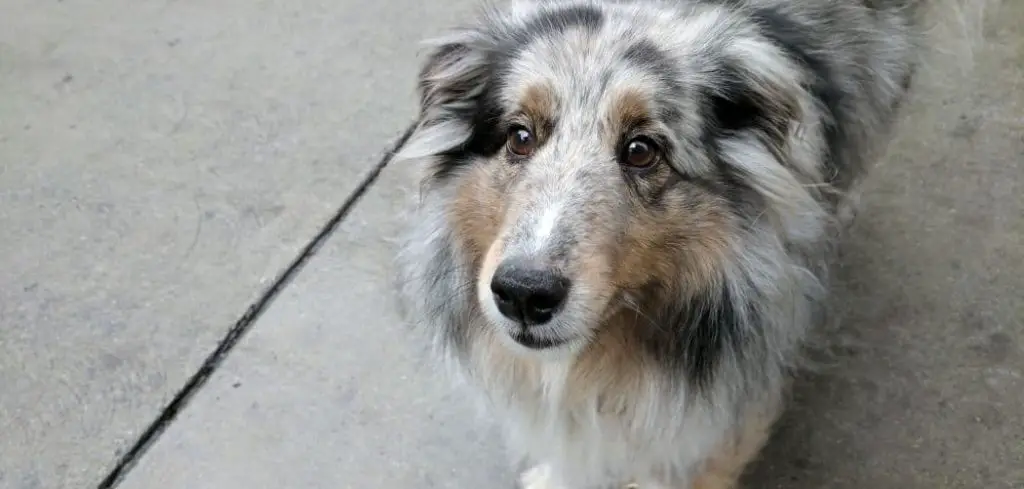Seeing your senior dog vomit repeatedly can be alarming and concerning for any dog owner.
Frequent vomiting may signal underlying medical issues, dietary problems, or age-related organ changes.
We outline the common reasons why an old dog may keep throwing up, what you can do at home, and when to seek veterinary help.
Old Dog Keeps Throwing Up — Why It Happens
An old dog that keeps throwing up often experiences this because of underlying health issues such as gastrointestinal problems, kidney or liver disease, pancreatitis, or infections. Age-related conditions like cancer or organ decline can also trigger frequent vomiting.
In some cases, food intolerances, dietary changes, or ingestion of harmful substances may be the cause.
Persistent vomiting in senior dogs is never normal and usually signals that veterinary evaluation is needed to identify and treat the root problem.

Old Dog Keeps Throwing Up: Common Causes
Gastrointestinal Upset
Upset stomachs are a frequent cause of vomiting in senior dogs. Dietary indiscretion, sudden changes in food, or sensitivity to certain ingredients can irritate the digestive tract.
You may notice signs like diarrhea, drooling, or discomfort after eating. Managing diet carefully and monitoring portion sizes can help prevent repeated vomiting episodes.
Read more: Old Dog Vomiting and Not Eating (Understand the Connection)
Kidney Disease
Kidney issues are common in aging dogs and can lead to vomiting. When the kidneys are not functioning properly, toxins build up in the bloodstream, which can trigger nausea and vomiting.
Other signs include increased thirst, frequent urination, lethargy, and weight loss. Early detection and treatment are crucial to slow disease progression and improve quality of life.
Liver Disease
Liver problems can disrupt digestion and metabolism, causing nausea and vomiting.
Dogs may display jaundice (yellowing of the eyes or gums), loss of appetite, or lethargy. Prompt veterinary evaluation is needed to manage liver disease effectively and prevent further complications.
Pancreatitis
Inflammation of the pancreas often causes sudden vomiting in senior dogs. Pancreatitis may result from dietary fat overload, obesity, or other underlying conditions.
Signs include abdominal pain, loss of appetite, and diarrhea. Veterinary care is necessary to treat inflammation, manage pain, and prevent dehydration.
Infections or Parasites
Bacterial, viral, or parasitic infections can lead to vomiting in older dogs. Symptoms may include diarrhea, fever, lethargy, and a decreased appetite.
A veterinarian can identify the specific cause and provide appropriate treatment such as antibiotics or antiparasitic medications.
Medications and Toxins
Certain medications or exposure to toxins can irritate the digestive system. Vomiting may occur after taking new prescriptions, supplements, or ingesting harmful substances.
Watch for signs like drooling, lethargy, or unusual behavior. Always consult a veterinarian before adjusting medications or addressing potential toxic exposures.
What to Do If Your Old Dog Keeps Throwing Up
Monitor your senior dog’s vomiting frequency and appearance to help identify triggers.
Provide small, bland meals such as boiled chicken and rice to soothe the stomach.
Ensure access to fresh water to prevent dehydration, especially if vomiting is frequent.
Create a calm and stress-free environment to reduce anxiety-induced vomiting.
Avoid giving human medications or home remedies without veterinary guidance, as these may worsen the condition.
When to Call or Visit Your Vet
Immediate veterinary attention is warranted if vomiting is accompanied by lethargy, severe dehydration, or blood in vomit.
Persistent vomiting with diarrhea, weight loss, or sudden behavioral changes also requires prompt evaluation.
Senior dogs with kidney, liver, or heart disease need rapid intervention if vomiting occurs to prevent serious complications.
A veterinarian can perform tests to identify underlying causes and recommend targeted treatment, including medications, dietary changes, or supportive care.
Read more: Old dog vomiting and diarrhea and not eating (What You Can Do)
Key Takeaway
Frequent vomiting in older dogs can signal gastrointestinal issues, organ disease, infections, or reactions to medications.
Observing your dog closely, maintaining a gentle diet, and providing hydration are important first steps.
Prompt veterinary evaluation is essential to diagnose underlying causes and provide effective treatment. With attentive care, you can help your senior dog feel more comfortable and maintain a better quality of life.
